News
READ about 5 Igbo-speaking countries of the world outside Nigeria
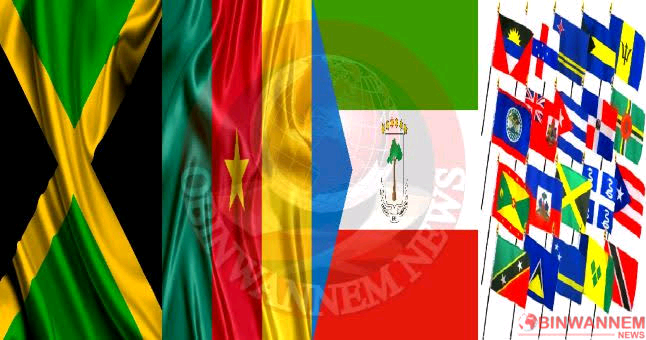
Over 40 million people speak the Igbo language. The Igbo people are primarily found in southeast Nigeria, but there are other Igbo-speaking countries. Before colonialism, the Igbos referred to themselves as “Ndi Igbo.” The language is classified under the Kwa subgroup of the Niger-Congo Language Family. Different dialects are well recognised and used in texts.
Checkout the Igbo-speaking countries apart from Nigeria below:
1. Barbados
Barbados is an island country in the West Indies close to North America and north of South America. Barbados combines Portuguese, British, Indian, and West African cultures. The people are officially called the Barbadians. The country has a nickname called “Bim,” which originated from the Igbo language “bi mu,” meaning “my people.” In Barbados, English is the official language, but they borrow words from West African languages, especially from Igbo.
2. Cuba
Cuba is also an Island country and one of the Igbo-speaking countries. It is the third most populous country in the Caribbean after the Dominican Republic and Haiti. For centuries, different languages have been merged in Cuba to form cultural practices that can also be linked to Igbo ancestry. The Igbo language has a significant influence on Afro-Cuban religious practices, especially in Abakua society.
3. Jamaica
Jamaica is a country in the West Indies and Caribbean Sea. It is one of the largest Islands after Hispaniola and Cuba. Most Jamaicans are from mixed races, such as East Asian, Lebanese, Indian, European, and sub-Saharan African. The speaking of the Igbo language started during the Atlantic slave trade, where many Igbos were sent to the country, eventually influencing the Jamaican local culture. For instance, the Igbo word “unu, ” meaning “you,” is still used.
4. Equatorial Guinea
Equatorial Guinea is a country in Central Africa. In this country, Igbo is a regional language spoken by over 40 thousand people. The Igbo people reside mainly in Bioko Island of Equatorial Guinea. The country is quite close to southeastern Nigeria, which makes it easy for the Igbos to migrate.
5. Cameroon
Cameroon is also in Central Africa and shares a border with Nigeria. Igbos started migrating to Cameroon in the 1920s. Initially, southeast Nigeria shared some parts with Cameroon before there was a final split in distinguishing territories. In Cameroon, the Igbo language is used as a lingua franca; it is just part of everyday vocabulary.
News
Nigeria Felicitates with South Africa on 31st Freedom Day Anniversary

By Gloria Ikibah
Nigeria has congratulated South Africa on the celebration of its 31st Freedom Day anniversary, marking more than three decades since the end of apartheid rule.
This was contained in a statement issued by the Ministry of Foreign Affairs, on Sunday in Abuja, the Minister, Ambassador Yusuf Maitama Tuggar, extended warm greetings to his South African counterpart, His Excellency Ronald Lamola, Minister of International Relations and Cooperation.
Ambassador Tuggar described the day as a reminder of the historic victory of democracy over apartheid and a celebration of the resilient and unified spirit that continues to shape South Africa’s journey.
“Nigeria and South Africa share a profound bond forged through decades of solidarity in the liberation struggle. As we reflect on this milestone, we recall Nigeria’s unwavering support for the anti-apartheid movement, including diplomatic, material, and moral contributions that underscored our commitment to justice and the ethos of pan-Africanism,” the statement read.
Highlighting the strong bilateral ties between the two countries, Tuggar emphasized the shared responsibility Nigeria and South Africa have in promoting peace, security, and inclusive development across the African continent.
He noted that as Africa’s two largest economies and democracies, there is a need to strengthen collaboration in areas such as trade and investment through the African Continental Free Trade Area (AfCFTA), as well as cultural exchanges and youth empowerment.
“Therefore, on this Freedom Day, we stand with South Africa in honouring the sacrifices of heroes like Walter Sisulu, Nelson Mandela, Govan Mbeki, Thabo Mbeki and recommit to working together to realize the vision of a prosperous, peaceful, and united Africa,” he added.
News
Enugu Reps caucus backs concessioning of Enugu airport
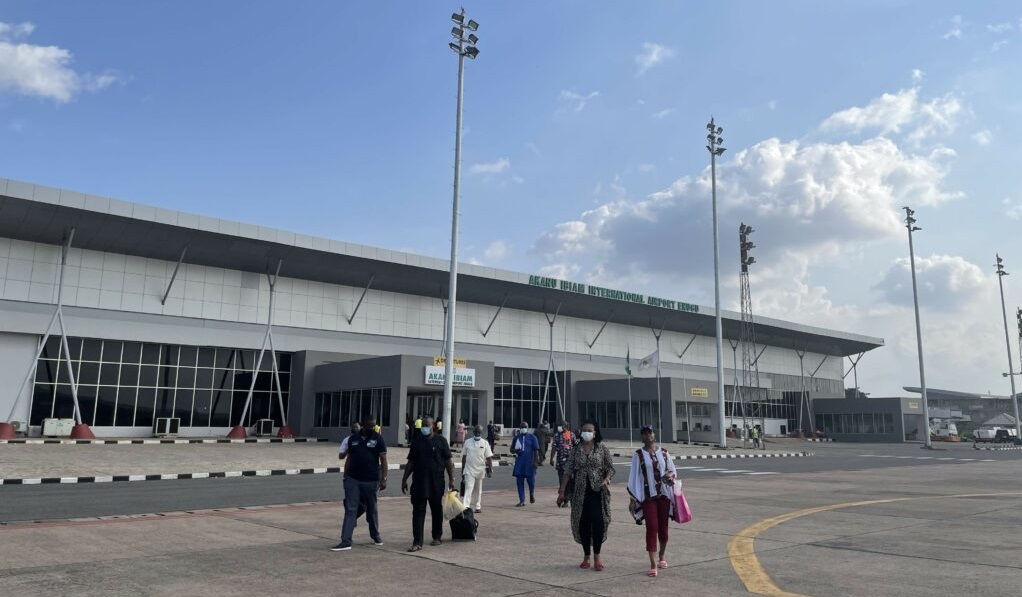
The Enugu Caucus in the House of Representatives has thrown its weight behind the Federal Government’s plan to concession the Akanu Ibiam International Airport, Enugu, describing it as a potential catalyst for the Southeast economy.
The caucus commended the Federal Government for the initiative and urged it to hasten the process to enable the people of the Southeast and the nation to benefit from it in earnest.
It also called on the people of the region to support the concession as the only way to guarantee sustainable investment to fully develop the airport into a truly international facility.
News
Vatican: Conclave to elect a new pope will start on May 7
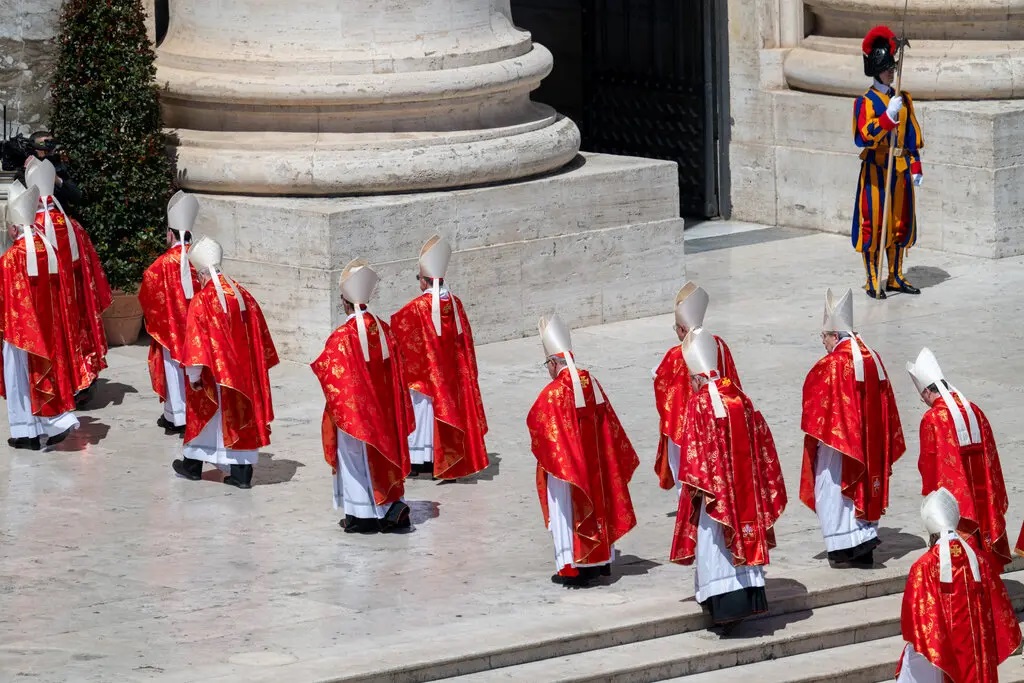
Cardinals will meet next month in a secret conclave to elect the next pope, the Vatican has said.
The closed-door meeting will start inside the Sistine Chapel on 7 May and will involve some 135 cardinals from across the world.
It follows the death of Pope Francis who died at the age of 88 on Easter Monday and whose funeral was held on Saturday.
There is no timescale as to how long it will take to elect the next pope, but the previous two conclaves, held in 2005 and 2013, lasted just two days.
Vatican spokesman Matteo Bruni said cardinals will take part in a solemn mass at St Peter’s Basilica, after which those eligible to vote will gather in the Sistine Chapel for the secretive ballot.
Once they enter the Sistine Chapel, cardinals must have no communication with the outside world until a new Pope is elected.
There is only one round of voting on the first afternoon of the conclave, but the cardinals will vote up to four times every day afterwards.
A new pope requires a two-thirds majority – and that can take time.
Each cardinal casts his vote on a simple card that says, in Latin: “I elect as Supreme Pontiff” to which they add the name of their chosen candidate.
If the conclave completes its third day without reaching a decision, the cardinals may pause for a day of prayer.
Outside the Sistine Chapel the world will be watching for the smoke from the chimney.
If the smoke is black, there will be another round of voting. White smoke signals that a new pope has been chosen.
On Saturday, politicians and royalty joined thousands of mourners as Pope Francis’ funeral was held in St Peter’s Square.
Hymns played out on giant speakers, occasionally drowned out by the sound of helicopters flying overhead, before 91-year-old Cardinal Giovanni Battista Re gave a homily on the pope’s legacy.
After a ceremony, huge crowds lined the streets of Rome to watch as the Pope’s coffin was carried in a procession to his final resting place, Santa Maria Maggiore Basilica.
Authorities said 140,000 people had lined the streets, clapping and waving as the hearse – a repurposed white popemobile – crossed the Tiber river and drove past some of Rome’s most recognisable sights: the Colosseum, the Forum and the Altare della Patria national monument on Piazza Venezia.
On Sunday images of Pope Francis’s tomb at the church were released showing a single white rose lying on the stone that bears the name he was known by during his pontificate, below a crucifix illuminated by a single spotlight.
-

 News11 hours ago
News11 hours agoJust in: Senator Natasha tenders satirical ‘apology’ to Akpabio
-
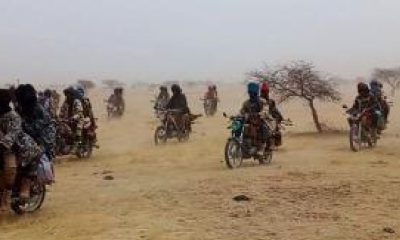
 News5 hours ago
News5 hours agoInsecurity: BUDA urges govt to quickly rescue Baruten from terrorists
-

 News7 hours ago
News7 hours agoUNUSUAL! Without invitation, Police declared me wanted — Daughter of ABC Transport owner
-
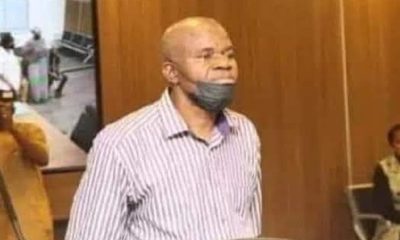
 News2 hours ago
News2 hours agoBreaking: Late gospel singer Osinachi’s husband sentenced to death by hanging
-
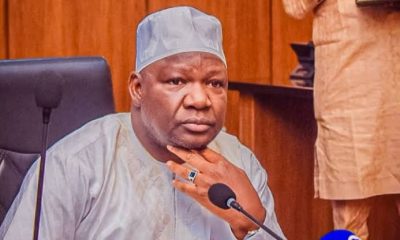
 News4 hours ago
News4 hours agoWeeks to 2nd anniversary, Niger deputy gov, plans to resign, move out personal effects
-

 News20 hours ago
News20 hours agoBenue LG chairman gives Fulanis 48hrs to leave all farmlands
-

 Metro12 hours ago
Metro12 hours ago‘My husband always makes love throughout the night until morning’ – Woman Wants Divorce
-
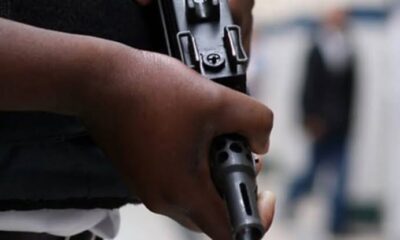
 News20 hours ago
News20 hours agoFive suspected kidnappers eliminated by police in Delta


















